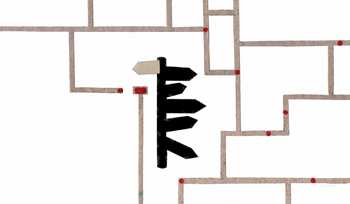Submitted by lratledge on
The family is under attack, or so Family Watch International would have you believe. The organisation rallied support for a Human Rights Council resolution passed today on the “protection of the family: role of the family in supporting the protection and promotion of human rights of older persons”.
Taken at face value - and slightly jarring grammar aside - who could object? Certainly there are human rights issues affecting older people and many of those take place within the family. Older people are often in need of care and support and many choose to remain with their families rather than live in institutions, making it important that their rights to health, privacy and dignity are respected in that setting. The Human Rights Council should certainly be addressing this issue, but the resolution has critical blind spots. Older people are particularly vulnerable to abuse and neglect which goes unnoticed because it happens in private within families, an issue not properly addressed by the resolution.
This failing is reason enough to raise concerns, but a more insidious current ran through the negotiation. The resolution is the latest attempt to restrictively define what a family is, excluding children who live within families that do not fit the stereotype of married heterosexual parents with children. Children have the same rights, regardless of who their parents are or how they choose to live and the attempt to protect a traditional concept of “the family” can only discriminate against children who find their family does not fit this norm. The hostility to the term “various forms of the family”, which is at the heart of the negotiation, is a hostility to the rights of children who find themselves born to less traditional forms of family.
The focus on “the family” in this setting rather than the individuals within the family is also a misunderstanding of the nature of human rights. “The family” does not have rights under international human rights law, only individual members do. Treating the family unit as a whole draws emphasis away from the rights of the individual family members and further marginalises those that are already marginalised - children and women as well as older people.
Family Watch International has attempted to gloss over these faults in its highly organised campaign targeting the States involved in the negotiation. They have written a letter to debunk the “false claims” of the human rights organisations that are raising the risks of this resolution. But far from bringing light to the issue, the letter barely engages with the human rights issues at stake and, where it does, appears to willfully misrepresent criticisms and concerns.
No one is arguing that protecting families as opposed to family members - whatever that may mean - necessarily means that individual rights would suffer, what they are arguing is that trying to protect specific types of families harms the individual rights of children who find that they don’t live within one of these families.
Similarly no one is arguing, as such, that the resolution will enable family members to abuse vulnerable family members, but that a shift from protecting individuals within a family to the family as a single unit can mask and hide abuse. Worldwide an estimated one billion children still experience violence in the home on a regular basis.
FWI’s arguments also take a more cryptic turn, claiming there is a need to protect the family from the the effects of various ills, from substance abuse and pornography to migration and family separation. No one would dispute that these are serious issues that can have terrible effects for individual members of families and their relationships with each other, nor would anyone dispute that they engage the human rights of those family members. But what additional protection “the family” requires is far from clear. What is the difference between protecting the right of family reunification between individual family members as opposed to the family as a whole? The answer can only be that that Family Watch International is only interested in protecting certain types of families.
The Human Rights Council’s role is to promote universal respect for the protection of all human rights and fundamental freedoms for all, without distinction. This shift in focus from family members to “the family” is discriminatory and an abandonment of this mandate. Individual family members have rights under international human rights law, the family as a unit does not.
* * * * *
Increasingly we are seeing groups or organisations use the language of children’s rights to excuse or justify violations of human rights and to disguise xenophobic, misogynistic, homophobic, racist or nationalist views. Under the guise of protecting children, the family or national security, dissent is being crushed, demonstrations are being banned and discrimination against women, children and LGBT groups is being perpetuated. Children’s rights are not charitable. They are established within broader international human rights law and we are going to speak out against those who undermine this. It’s time we claim back rights.

